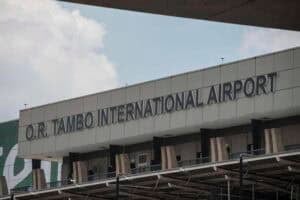Demonstrations began over the reintroduction of a quota scheme that reserved more than half of all government jobs for certain groups.

The death toll from clashes in Bangladesh has surged to at least 300, with 94 fatalities reported on Sunday. This marks the deadliest day in weeks of anti-government protests, according to an AFP tally.
The count is based on reports from police and hospitals. Protests will continue on Monday. Soldiers and police are guarding key roads and blocking access to Prime Minister Sheikh Hasina’s office in Dhaka.
Hundreds of thousands of Bangladeshi protesters demanded Prime Minister Sheikh Hasina’s resignation. They ignored curfews in the capital on Monday after the deadliest day of unrest since the protests began.
Analysts fear that violence may exceed Sunday’s clashes. Protesters and government supporters fought with sticks and knives, and security forces fired on the crowds.
Bangladesh’s army chief, Waker-Uz-Zaman, will address the nation at 2pm, according to a military spokesman.
Rallies escalate into deadly unrest
Protests against civil service job quotas have intensified into major unrest, with demands for the 76-year-old Hasina to resign.
Waker told officers on Saturday that the military “always stood by the people”, according to an official statement.
In January 2007, the military declared a state of emergency due to widespread political unrest. A military-backed caretaker government was established for two years.
On Monday, internet access was limited, offices closed, and 3,500 factories in Bangladesh’s garment industry shut down.
Soldiers and police with armoured vehicles in Dhaka barricaded routes to Hasina’s office with barbed wire in a bid to enforce a curfew that came into effect Sunday evening, AFP reporters said.
However, witnesses reported vast crowds on the streets of Dhaka, tearing down barriers.
The Business Standard newspaper estimated as many as 400,000 protesters were on the streets but it was impossible to verify the figure.
“We are calling on students and the public all over the country to march towards Dhaka,” said Asif Mahmud, one of the key leaders in the nationwide civil disobedience campaign.
“The time has come for the final protest,” he said.
‘Shocking violence in Bangladesh must stop’
At least 94 people were killed on Sunday, including 14 police officers.
“The shocking violence in Bangladesh must stop,” United Nations rights chief Volker Turk said in a statement.
Ali Riaz, an Illinois State University politics professor and expert on Bangladesh, warned that Hasina was “digging her heels” in, adding he was “deeply concerned” at the crisis.
“This is an unprecedented popular uprising by all measures,” Riaz said. “Also, the ferocity of the state actors and regime loyalists is unmatched in history.”
Protesters in Dhaka climbed a statue of Hasina’s father, Sheikh Mujibur Rahman, the country’s independence leader, and smashed it with hammers on Sunday, according to videos on social media verified by AFP.

‘Walls closing in’
In many instances, soldiers and police did not intervene in Sunday’s protests. This was unlike last month’s deadly rallies.
In Dhaka, demonstrators waved a Bangladeshi flag on an armoured car as soldiers looked on, videos verified by AFP show.
The walls are closing in on Hasina as she increasingly loses support, says Michael Kugelman of the Wilson Center.
“The protests have taken on immense momentum, fuelled by raw anger but also by the confidence that comes with knowing that so much of the nation is behind them,” he said.
In a hugely symbolic rebuke of Hasina, a respected former army chief demanded the government “immediately” withdraw troops and allow protests.
“Those who are responsible for pushing people of this country to a state of such an extreme misery will have to be brought to justice,” ex-army chief General Ikbal Karim Bhuiyan told reporters Sunday.
Quote scheme sparks prostests
The anti-government movement in the nation of 170 million has drawn support from celebrities, including film stars and musicians.
Hasina has ruled Bangladesh since 2009 and won her fourth consecutive election in January after a vote without genuine opposition.
Rights groups accuse her government of abusing state institutions to maintain power and eliminate dissent. This includes extrajudicial killings of opposition activists.
Protests erupted against a new quota reserving over half of government jobs for specific groups.
The protests escalated despite Bangladesh’s top court scaling back the scheme.
NOW READ: Bangladesh suspends job quotas after student protests






